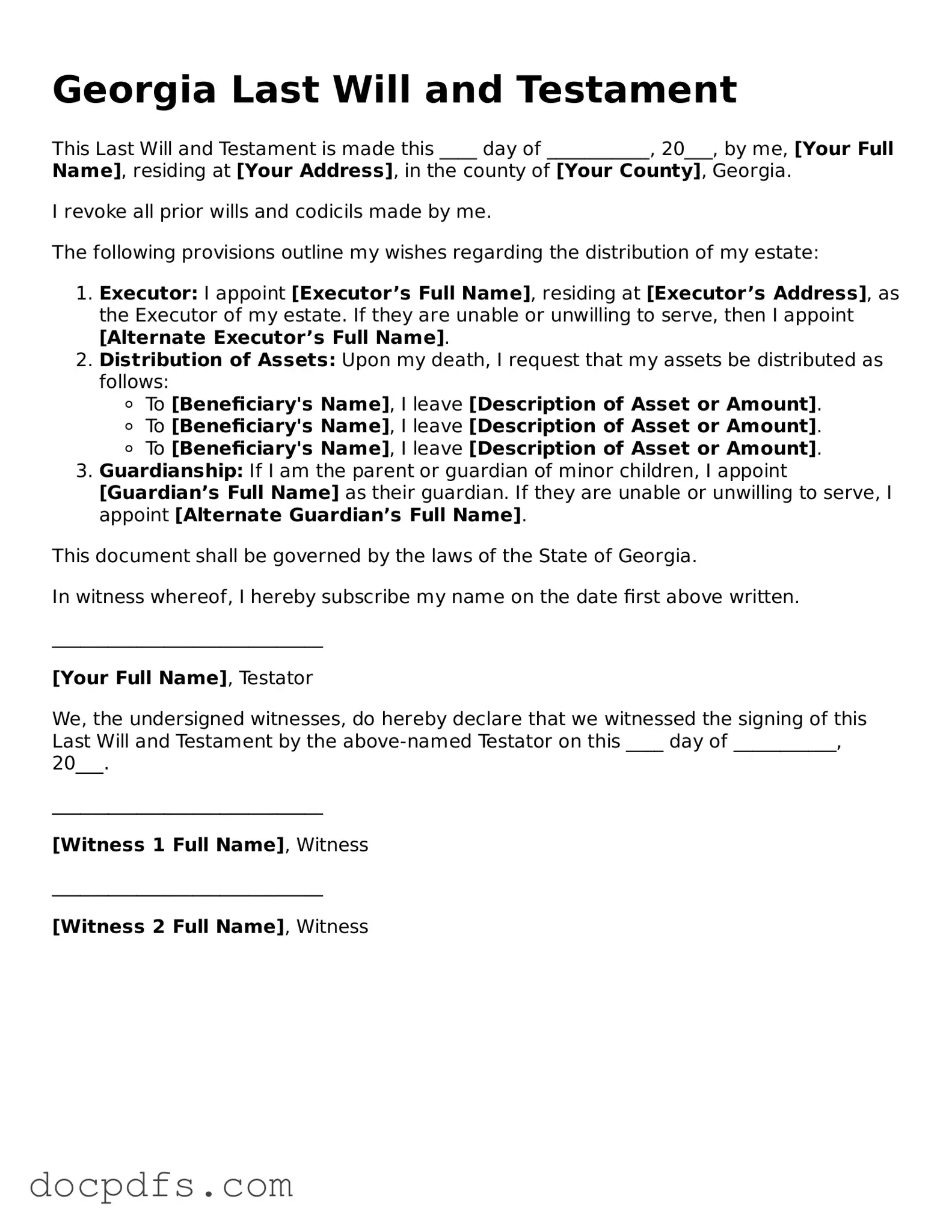Free Georgia Last Will and Testament Form
The Georgia Last Will and Testament form is a legal document that allows individuals to outline their wishes regarding the distribution of their assets after their death. This form ensures that your intentions are honored, providing clarity and direction for your loved ones during a difficult time. Understanding its importance can help you make informed decisions about your estate planning.
Open Last Will and Testament Editor Now

Free Georgia Last Will and Testament Form
Open Last Will and Testament Editor Now

Open Last Will and Testament Editor Now
or
⇓ Last Will and Testament
Finish this form the fast way
Complete Last Will and Testament online with a smooth editing experience.